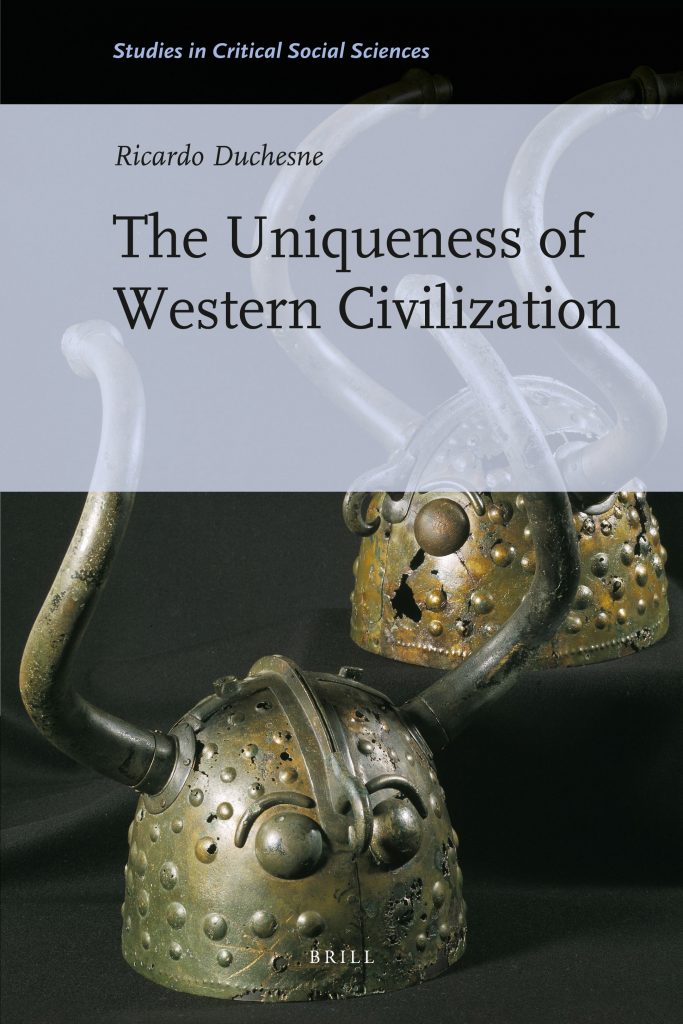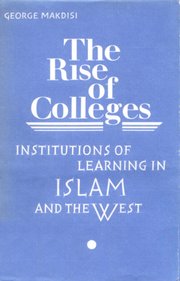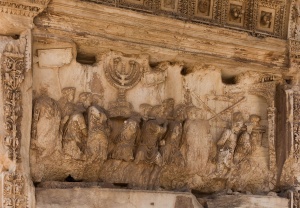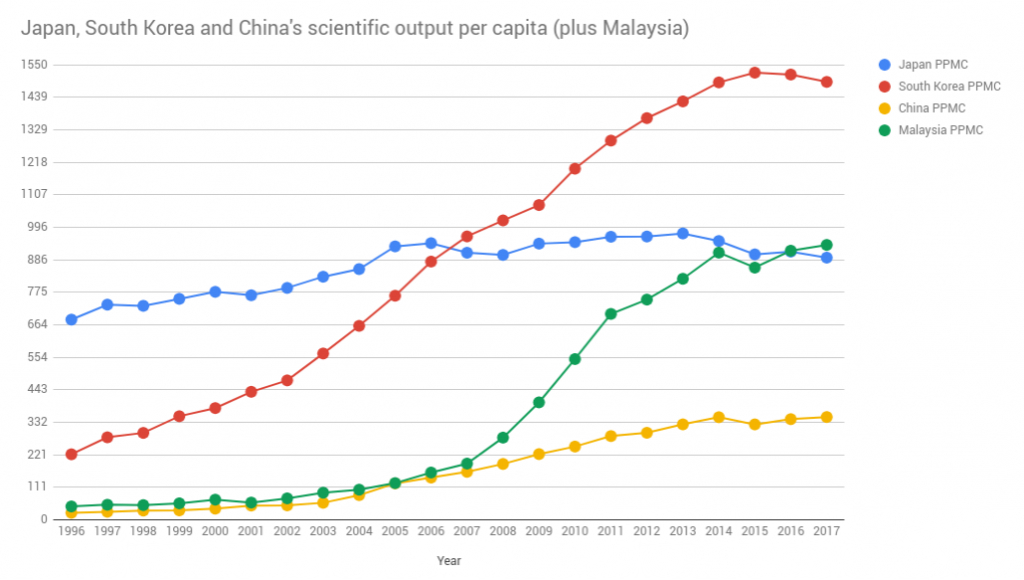There are times when you read a book that completely change your understanding of the world, answering questions you have had for most of your life, and even better, answering questions you did not know you had. This is such a book. Duchesne unites economic analysis, anthropology, history and philosophy in order to make a compelling argument for why Western civilization is truly unique and unlike any other civilization.
Since writing this book, Duchesne has been influenced by white nationalist writers into seeking genetic answers for the uniqueness of the West. But the current book is free from genetic explanations. Duchesne also has a very negative view of Muslims, considering them unassimilable and inherently opposed to Western civilization. But that shouldn’t stop us from benefiting from his work. One of the most hateful fashions in the media and academia today is discarding a person’s valuable work because of their beliefs and motives.
Duchesne’s greatest contribution is his theory that the uniqueness of the West comes from the fact that the ancient Indo-Europeans who took over Europe had a very special feature: their elite was made up of individually sovereign aristocrats. While all societies throughout the world have had aristocratic elites, what was unique about the West was the fact that its aristocrats were individualized and free. This is extremely unusual and as far as I know it was something that never existed anywhere else.
The ancient Middle East never enjoyed the existence of individually sovereign aristocrats. The elite under the pharaohs had no right to compete with each other for renown and prestige because all renown and prestige belonged solely to the pharaoh. The same was true in ancient Mesopotamia and Persia. The king was the only person who had the right to claim personal worth and glory.
But among the Europeans, the Greeks, Romans and the Indo-European barbarians around them, the entire arrangement of society revolved around the competition of its sovereign aristocrats for personal prestige and glory. They had no toleration for kings who reduced the aristocracy to mere minions and slaves as happened throughout the world. They demanded equality and free competition.
Thus in the Greek epic the Iliad, the warrior aristocracy is made up of free individuals who recognized no master above them. Achilles, Ajax and Odysseus were all sovereign individuals. The Mesopotamian Epic of Gilgamesh, on the other hand, is an illustration of the situation outside the European realm. There is only one hero, who is, naturally, a despotic king. There is no room in this epic for other heroes since these societies were organized around the recognition of a single individual in the entire state who could claim personal prestige and glory.
The theory of the presence of a sovereign aristocracy in the West and its absence elsewhere also explains why the Indo-Europeans of Persia and India failed to create civilizations equal to those of Europe. The Indo-Europeans who took over Persia and India quickly embraced the Oriental despotic form of rule that has always existed in these areas. The sovereign aristocracy disappeared to be replaced by all-powerful rulers. The reason for this change appears to be different natural environments. The European climate could support individual farmers who could sustain themselves without any need for complex irrigation systems that required centralization. In the East, however, civilizations were extremely dependent on irrigation systems that made farmers desperately dependent on their chiefs and kings. The king could easily cause the farmers to starve by refusing to provide them with the irrigation systems they were so desperately dependent on.
The Westernization of the World
If we take the ideas in Uniqueness seriously and ignore Duchesne’s recent writings about the genetic uniqueness of Europeans, the conclusion is that the great accomplishments of the West are a matter of culture. The door is open for any culture in the world to embrace the Western system, leading to a similar flowering of creativity and accomplishment. The key is individualism. The culture must recognize the equal dignity, mastery and right to prestige of all citizens, rather than recognizing only one despotic ruler who monopolizes mastery and prestige.
Thus any culture that embraces the Western ideal of the equality of citizens before the law will create a system that will lead to a similar restless drive among citizens for accomplishment. According to the social scientists Santos, Varnum and Grossmann, there has been a significant increase in individualism throughout the world. The world is increasingly adopting the Western ideal of sovereign individuality.
I was surprised to discover that one of the most popular Arabic songs on YouTube (with 154 million views) is a song that preaches strict individualism, titled “Be You”.
The Israeli social scientists Licht, Goldschmid and Schwartz have discovered that there is a very strong correlation between individualism and the rule of law, non-corruption and democratic accountability. As individualism increases throughout the world, we can expect more and more functional democracies to come into existence.
The “Wickedness” of the West
According to the currently fashionable ideology at the sociology departments of Western universities, the West is uniquely evil. It doesn’t matter that the Chinese colonized the lands of ethnic minorities and sometimes massacred them; it is the Western colonization of other lands that is unforgivable. It doesn’t matter that the native Americans slaughtered and enslaved each other, or that the Aztecs practiced mass human sacrifice; it is the intrusion of the West into this utterly evil and inhuman social system that is unforgivable. It doesn’t matter that Africans used to enslave each other by the millions; it is the fact of Westerners buying these slaves that is unforgivable. It doesn’t matter that India has an utterly racist and dehumanizing cast system or that Israel is an apartheid state; it is the racial inequalities in the West that is unforgivable.
The action of the Europeans on the world scene over the past few centuries were clearly motivated by much greed for wealth and power. But a person who does not have an ax to grind against Westerners will see them and their actions as no worse than those of the rest of the peoples of the world. And not just that, but such a person will also appreciate the uniquely positive and humane contributions that the West has made to make the lot of non-Westerners better. It was the British who spent vast amounts of wealth, and large numbers of the lives of their own, to police the seas in the 19th century to put an end to the slave trade. Yes, the British engaged in it before, like almost all other peoples. But it was they, and not the Chinese, Indians, Muslims or Africans who developed an anti-slavery ideology that ensured that slavery would be abolished throughout the world. But to those who are moved by hate against the West, this is irrelevant. The West is evil, and the facts do not matter.
China as the West’s Equal
There is a concerted academic effort aimed at showing that China was equal to the West until the 1800’s when the West discovered the use of coal and gained access to the colonized Americas. The point is to show that Western civilization has nothing to be proud of in being responsible for the intellectual and industrial revolutions that made it the supreme world power by the 19th century. The West simply enjoyed “windfalls” in its easy access to coal and in its access to colonial markets.
We are supposed to believe that the West was stuck in the same position as China in the 19th century, with the population quickly approaching its ecological limits. This truly was the case in China, where a lack of innovation coupled with maximized land use meant that the population could no longer expand beyond its 350 million citizens. It was already producing food at the maximum rate it could, and the only solution for keeping their population under control was widespread female infanticide (something that is supposed to be morally neutral since it wasn’t Westerners doing it).
Britain is supposed to have enjoyed a “windfall” in its acquisition of the Americas, but the historian Kenneth Pomerantz shows no interest in China’s bloody colonization of vast swathes of non-Chinese lands to the west over the centuries. In his distorted worldview “colonization” is something that only Europeans do. Pomerantz also shows no interest in the “windfall” that China enjoyed in possessing lands capable of growing rice; a crop that produces two harvests per year. He also shows no interest in the fact that China greatly benefited from the use of potatoes–a “windfall” crop acquired from the Americas.
The first part of Duchesne’s book is dedicated to refuting the current academic narrative of a China that was a counterpart to the West until the 19th century. He shows that the West was improving its technology and capacity to support its population at a rate that enabled it to continue to support growing populations. This was something China was incapable of due to its lack of innovation.
“Eurocentrics” like Duchesne have been characterized as believing that the West achieved its supremacy without any debts to other cultures. But Duchesne clearly opposes such a view:
By 1200, Europe had recovered much of the scientific and philosophical accomplishment produced within the rest of the world. Persian, Byzantine, Chinese, Indian, African, and Islamic cultures were essential ingredients in Europe’s ascendancy. Affirming the uniqueness of Western civilization in no way implies the idea that Europe can be viewed as a self-contained civilization. A major secret of European creativeness was precisely its multicultural inheritance and its wider geographical linkages with the peoples of the world.
Humans as Passive Animals
One of Duchesne’s major efforts is to refute the popular academic conception of humans as passive actors in world history, controlled by circumstances and environments that made them what they are. Duchesne argues that Westerners were active agents who sought wealth and prestige, not passive agents who couldn’t help doing what they did due to economic circumstances.
The view of humans as passive animals stuck in their circumstances is often associated with Marx, although I believe that we can detect the same strains of thought in many other highly influential 19th and 20th century intellectual movements, almost all of them led by Jewish thinkers.
- Marx: Humans are passive animals controlled by economic class conflict.
- Freud: Humans are passive animals controlled by sexuality-based conflict within families.
- The Frankfurt School (Horkheimer, Adorno and Marcuse): Humans are passive animals controlled by social pathologies peculiar to the Western-Christian mentality.
- Betty Friedan aka Bettye Naomi Goldstein: Humans are passive animals controlled by sex-based class conflict (Marxism translated into feminism).
- Louis Brandeis and Ronald Dworkin: Humans are passive animals who do not know what is good for them; the elite must gain control of the legal system to force upon them what is good for them.
- Leo Strauss and his neo-conservative students: Humans (meaning ordinary Christians) are passive animals to be controlled by an atheistic philosophical elite behind the scenes.
- Jacques Derrida: Humans are passive animals controlled by dominant discourses that maintain power structures.
- Immanuel Wallerstein and Andre Gunder Frank: Humans are passive animals controlled by dominant “world systems”.
- Jared Diamond: Humans are passive animals controlled by environmental forces.
The only major non-Jewish intellectual who espoused similar ideas is Michel Foucault. It appears that there is something about Jewish culture that makes these intellectuals prefer removing human agency from their explanations of human behavior.
It should go without saying that this view of humans as passive animals controlled by circumstances is wholly foreign to Western civilization, which has always celebrated human agency. The thinking of these intellectuals can therefore be characterized as an importation of a foreign, Jewish view of humans into Western discourse, and the results are as anyone would expect.
All of the above radical movements (the most important today being the mix of cultural Marxism and postmodernism that rules in academia) are pests on intellectual development and scholarship and will ultimately be squashed by the constant, restless, innocent search for truth that continues to characterize many Westerners, and today, non-Westerners. I have high hopes in the increase of Muslim participation in intellectual fields. Muslims who follow Islamic morality will reject the relativization of truth and the reduction of humans to mere animals and will continue the Western tradition of respecting the inviolable dignity of humans.
The Islamic Doctorate
One minor criticism I have is Duchesne’s lack of knowledge of George Makdisi’s work. Thus Duchesne thinks that the crucial development of doctorates and the “the license to teach” (professorship) were uniquely Western, when Makdisi’s work strongly suggests that these were borrowed from Islam (as I discuss here). Islam did have a doctorate (the taʿliqa) that granted the person professorship. Islam also invented the idea of academic freedom. What Islam failed to do was extend this concept to other fields of inquiry. The doctorate and professorship were strictly limited to Islamic law. This was borrowed by the West, but crucially, the West extended it to all fields of inquiry.
The West learned a great deal from Islam. But its culture of aristocratic egalitarianism meant that Westerners were far more motivated to take these ideas further in competition with each other.
History and Philosophy
Duchesne dedicates a great deal of writing to discussing Hegel’s views on the development of human consciousness out of the conflict between individuals. Duchesne believes that Hegel’s views on history actually only apply to Europeans rather than all humans. Hegel believed that human self-consciousness developed out of a “struggle to the death” with other humans. Hegel believed that a struggle to the death between two humans would end up in one of them enslaving the other. This is an unsatisfactory end because the master cannot accomplish true self-consciousness unless another master recognizes him. Therefore the true development of history requires the presence of multiple masters recognizing each other.
Duchesne rejects common interpretations of Hegel to suggest that this struggle is not just an abstract concept, but a description of the reality of the struggle to the death between barbarian European aristocrats, who accomplished self-consciousness through struggling with each other for prestige. Europeans accomplished self-consciousness before all other peoples because only they had a culture of sovereign aristocrats rather than omnipotent, despotic lords.
Duchesne says that there is an “unbroken link” between the earliest European Indo-Europeans who came out of the Pontic steppe north of the Black Sea, the ancient Greeks, the Romans, the various Germanic and Scandinavian barbarians, and the culture of medieval Europe to the present day. The process of the struggle to the death between aristocrats led to the development of the concept of equal citizens before the law. Only Europeans could have developed such a concept because only they had a social system defined by the existence of multiple, equal masters, rather than a system defined by the existence of a single master (a Pharaoh, a Persian “king of kings” or a Chinese emperor).
The End of Western Uniqueness
As I mentioned earlier, if we accept the theory that the West’s uniqueness comes from its recognition of the dignity and rights of the individual, then the spread of these ideas throughout the world means that the entire world is now part of the same Western system. Gone are the days when only Westerners competed with each other for individual prestige through innovation.
The Westernization of Islamic Studies
A very interesting aspect of the spread of Western aristocratic egalitarianism is the way Muslim intellectuals and scholars today have started to challenge the scholarly tradition of Oriental despotism that characterized Islamic studies in the past. What we have today are thousands of intellectuals and scholars throughout the world who are bravely challenging long-held beliefs in their individualist search for truth. They have, for example, defended women’s right to divorce and the right of Muslims to leave Islam without being molested, not by discarding Islamic teachings out of a desire to live up to Western standards, but by recognizing that Islam actually supports these views.
In the case of Christianity, the individualist search for truth meant that it suffered persistent attacks on its foundations as philologists in the 19th and 20th centuries subjected its texts and beliefs to rigorous scholarly study and debate. The view of many Westerners unfamiliar with Islam is that Islam too will have its foundations weakened as its study becomes more scientific. But the reality as I see it is quite the opposite. If Islam is really “true”, then it will survive the process intact.
And that is what I see all around me. Having benefited from the latest Western studies of Islam, my view of Islam’s validity has only strengthened. Those who look forward to the secularization of the world may take comfort in the history of the weakening of Christianity, believing that Islam will go through a similar process. But my view is that those hopes will never materialize. Western students of Islamic studies such as Jonathan Brown and Umar Wymann-Landgraf, who have subjected the Islamic scriptures (in their case the Hadith literature) to rigorous Western-style analysis have actually ended up converting to Islam.
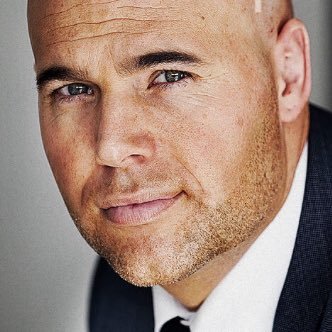
We are also seeing a possible trend of anti-Islam activists converting. Joram van Klaveren, a close ally of the anti-Islam politician Geert Wilders, in the middle of writing an anti-Islam book, ended up converting. What other religion in the world has such a power? Another far-right convert is Arthur Wagner. Yet another is Arnoud van Doorn.
Why are these lovers and defenders of Western civilization converting to Islam if Islam is inherently opposed to Western values?
It is my view that these activists, feeling embattled by the constant attacks on Western values, and recognizing that Christianity offers no hope, realized the Islam is actually the best hope for the survival of their civilization.
